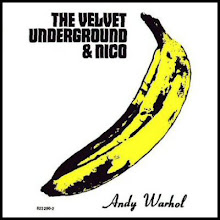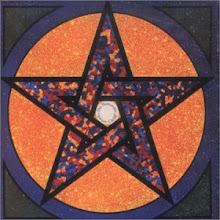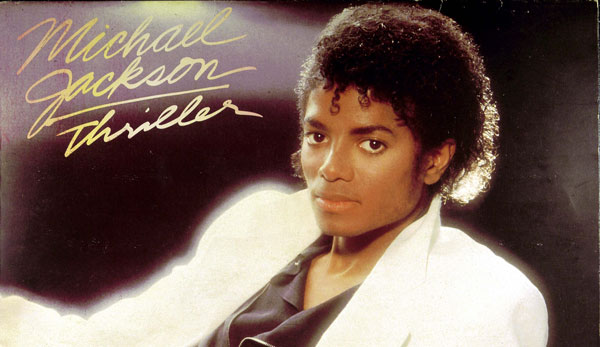
It is impossible for me to explain the importance and influence of Paul Weller's seminal album Stanley Road on my own life. In fact, it has taken me fifteen years to even consider writing about it. Quite frankly, it is a record that has saved me. A record that has many times revived me. Given me hope. Thrilled me. Chilled me. Comforted me in the early hours. Put me in the mood before a big night out. It has been there for me at the lowest ebb, and still been there during the greatest highs. And yes, I know, it's just a record. But this is the wonderful power of art. The magnificent power of music. The power to connect. The power to stabilise your emotions, invade your soul, take a firm grip of your heart and mind. Stanley Road did all of these things. I didn't ask it to. I had no idea this was going to happen to me. I was just your average kid living an average life in an average Secondary School, just like everybody else, when this record came along to, seemingly, sing my whole life back to me.
The year was 1995, and I was thirteen years old. Admittedly, I'd always been a kid that had leaned towards music. At the age of five I won a dance competition impersonating Michael Jackson at a local social club. At the age of ten, I had a party to celebrate my birthday; mainly so that I could show off my brand new Alba turntable, and my still immaculate copy of the Beatles' Blue Album on double vinyl LP. At that time in life, coming towards the end of Primary School, a guy called Alan Price and myself often got into trouble for failing to return to lessons on time. We would always be discovered in some hidden corner of the schoolyard with a group around us singing Hey Jude or Eight Days A Week. It was, however, the incident in 1995 that would change things forever.
My parents had just recently purchased SKY TV. I suppose it made me feel pretty posh at the time, even though it was definitely the 'in thing' to have. My Dad and I had a particular interest in the Premiership football that was blossoming on SKY Sports; Soccer Sundays (which, incidentally enough, had Weller's Out Of The Sinking as its theme), and Monday Night Football with Martin Tyler and Andy Gray, which the whole world, at the time, seemed to be watching. However, I'd managed to have several plays with the space-age remote control and found all sorts of channels of all different kinds, most notably the music channels. My sister was watching MTV the night I came downstairs - the night that would change everything. When I looked at the TV I remember being mesmorised by what I saw and heard; a suited and booted, sharp looking guy in his mid-thirties with a Beatle-esque mop-top haircut, kravat, and what I would later discover to be pyschadelic 'pop-art' flashing past him in the background. The song, fittingly enough, was called The Changingman. "Who's this?" I asked my sister, thoroughly consumed by it all. "Paul Weller," she responded. "I've got his album on tape upstairs if you want it?" Needless to say I made her dig it out immediately - a cracked and dusty case, housing the album Stanley Road. That night I listened to it on repeat, putting the wheels in motion for what would be one of the most important discoveries of my life.
Now, school wasn't tough for me. I'm not going to pretend it was. I had plenty of friends, played in all of the sports teams, was lucky enough to be in all the top classes, and generally had a ball. I very often wake up today, at the age of 27, and wish I was back there without a care in the world or a thing to worry about. The nature of being that age, however, always brings its problems. Girls. Puberty. Rebellion. The discovery of drink. The inability to consider reason. I was no different to any other male entering adolescence. This, of course, was where Weller became so important to me. He, as a songwriter and musician, had become something I could believe in. He was someone that I could idolise. A kind of demi-God. His songs soothed me - took me away to some other place for the time that they were on, helping me escape the tumultuous emotions spinning around my head. I could laugh along to Stanley Road, cry when I needed to, do my homework, dance around my room, sing my heart out; it provided a release, a way out, a doorway to another realm. It gave me something I'd never felt I'd had before: freedom.
As time went on this album became more of a staple in my life. A day rarely went by without it passing through the player. I'd bought it on CD by then, of course, which meant I could read the booklet, dissect the lyrics, stare at the pictures, and imagine the world that Weller had envisaged whilst putting the record together. It was my interest in Stanley Road as a 'package' that triggered my obsession with record collecting - something that I still practice religiously to this day. Music had, all of a sudden, become 3-Dimensional in my life, and Weller was to blame. It wasn't long, of course, before I had discovered more of his stuff; Wild Wood, an album that had just as collateral an impact on me as Stanley Road did, and a little later on, Heavy Soul (1997), which was the first Weller record I actually bought on release - an occasion that brought me great excitement. I'd also taken a great interest in his influences too - mainly the whole Mod scene. The Beatles and The Stones, of course, but more specifically, The Who, The Kinks, and The Small Faces. It seemed like everywhere I looked I made another golden discovery. I had become Frodo Baggins starting my quest from the Shire to the heart of Rock'n'Roll, meeting all sorts of wierd and wonderful names and faces upon the way. The branches of the tree went on forever, and continue to still.
As my school years drew to a close, and my college years began, the Mod ethos had begun to grip me. I was, of course, a Weller devotee. I wanted to look like him, wanted to sing like him, wanted to play like him. I had taken up guitar and was progressing well. I just needed an image, and I loved everything that he and his contemporaries stood for. The clothes were cool, and the haircuts immense. I started to grow mine over my ears, and was concious of dressing snappy all the time. Female attention, as it does, began to interest me, which was when I truly began to realise the beauty of the song You Do Something To Me - in my humble opinion, the greatest song ever written. Over a decade later I still listen to that song regularly, and it still has the same magical effect on me. I also perform the song live too, since I am a working musician these days (probably, I might add, another thing I can blame Paul Weller for), and I never, ever get tired of singing it. It never fails to astonish me how audiences, whether young, old, or somewhere inbetween, melt when we begin to play it. It is beyond a masterpiece. Beyond just a song. It is a groundbreaking piece of art that has captured the hearts of generations who have the heart to be able to love. You'd have to be a stone-cold prehistoric not to, at least, appreciate the sentiment.
The rest of the album, in my opinion, is equally as strong. The Changingman, Broken Stones, and Out Of The Sinking - the other three singles on the album (along with You Do Something To Me), are all stunning and timeless records in their own right. Porcelain Gods and I Walk On Guilded Splinters provide a mesmorising, moody, and swirling medley in the early stages, and Woodcutter's Son is a driving, splintering, guitar-led stomper midway through. Time Passes is a whimsical, delicate ballad centered round memories of a past relationship. The title track Stanley Road is bouncing, piano-driven recollection of Weller's childhood, Pink On White Walls a medium paced thought-provoker, and Whirlpool's End a moving and tragic epic in which Weller's studio band excel themselves. It provides a perfect lead into the almost gospel and compelling Wings Of Speed, that can fill the heart with joy and the eyes with tears all at once. I'm no music journalist, and I'm not here to sell Stanley Road to anyone. This album is now part of me; part of who am and what I do, and so sooner or later my biopsy just had to come. It has taken me long enough to buck up the courage. Taken long enough to really consider the importance properly.
I first saw Paul Weller when I was 17 in Preston Guild Hall - a night that will live with me to my dying day. A night when my idol, for the first time, stood before me and delivered an electrifying education. I have travelled to see him over fifteen times since both in the UK and abroad, and will continue to do so until one of us ceases to exist. In fact, we share a room once again in May of this year - and a very prestigous room too; The Royal Albert Hall, London, for my first experience in this magnificent venue. I hope to share nights with this legend of popular music for many years to come, enjoy his records, and forever appreciate the impact that this man and his music has had on my life.
I thank you, Paul Weller, and, I love you Stanley Road.
































.jpg)

































































.jpg)
















































